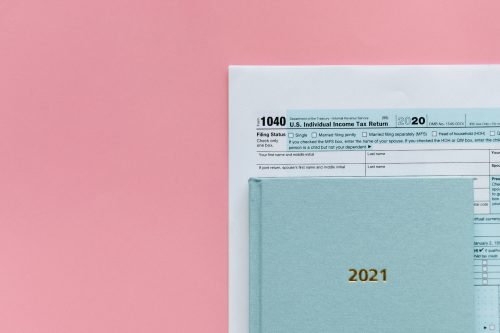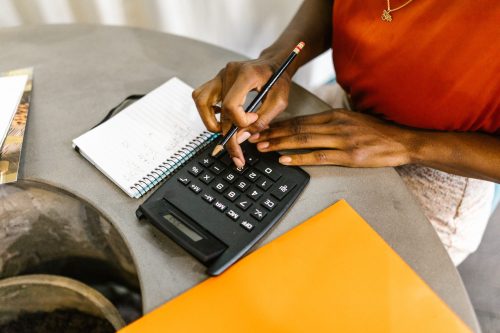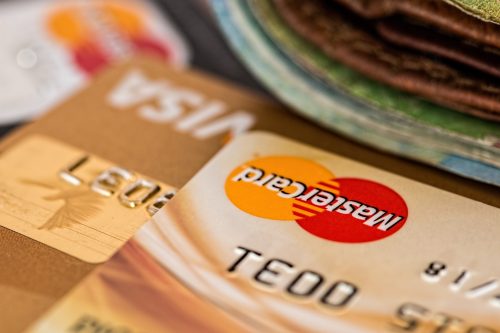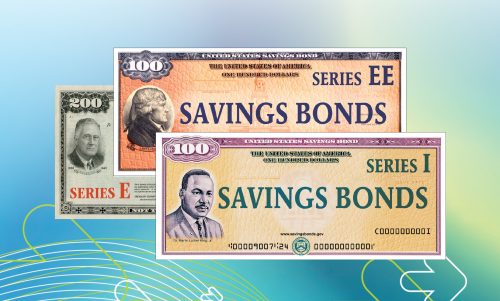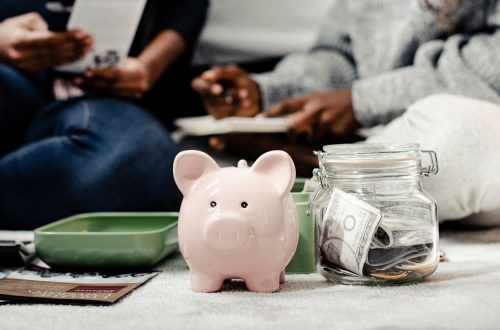- Getting a first-time credit card can be a good idea if you’re entering adulthood or want to build a credit history.
- There are a few common credit cards for people without a credit history.
- There are core terms you should know before applying for your first credit card, such as credit limit, billing period, APR and more.
According to the May 2021 data from the American Bankers Association, there were 365 million open credit card accounts in the United States by the end of 2020. It’s a staggering number but not surprising, considering how useful credit cards can be.
Having a credit card, in addition to a debit card, can be a helpful tool for your finances, especially if you’re a first-time credit card user. If you’re looking into your first credit card, there are a few important things to understand. Keep reading to learn how to get a credit card for the first time, when you should do it, how a credit card builds credit and relates to your credit score, and other tips for using your first-time credit card.
When should you get a credit card?
Becoming a cardholder comes with responsibilities. Before applying for your first credit card, you should be able to pay off any charges you accumulate. You should also have a sense of which purchases should go on a credit card, versus those that would benefit from being paid with cash or financed through a loan.
There are particular instances when you should consider becoming a first-time credit card user.
- You want to build a credit history: Purchasing items on credit cards can help you build a credit history, which can then enable you to make large purchases in the future, such as a car or home.
- You have enough money to pay for your charges: You’ll want to pay off your balances to avoid accumulating debt, so make sure you can afford to pay for anything you charge.
- You can manage debit card payments: If you’re spending responsibly on your debit card and not overdrawing your bank account, you may be ready for a credit card.
How does a credit card build credit?
Responsible use of a credit card can build credit when you pay your bills in full and on time. This shows credit bureaus that you are able to repay and manage your charges, which will be reflected on your credit report and, in time, raise your credit score.
| Why Is It Important to Establish Good Credit History? |
| A good credit history can prove to credit bureaus that you’re financially responsible, which will subsequently raise your credit limit, enabling you to make larger purchases over time. It can also help you secure other financial products down the line, such as a mortgage or personal loan. |
How to get a credit card for the first time
You’ll need a few documents to apply for a credit card for the first time. Requirements may vary depending on the financial institution issuing the card, but generally, you’ll need your:
- Full legal name, birthdate and Social Security number
- Mailing address and phone number
- Gross income
- Employment status
It’s also important to note that most credit card companies won’t issue credit cards to people younger than 18 or 21.
How do you get a credit card if you have no credit history?
If you don’t have an established credit history, it may be more challenging to get a credit card because lending institutions have no reference regarding your ability to pay back the debt you’ll accumulate. However, there are options available if you have little or no credit history.
- Apply for a student credit card: A student credit card is a low-limit card meant particularly for college students and can help young spenders build their credit histories to eventually get a standard credit card.
- Apply for a secured credit card: A secured credit card requires a security deposit from the cardholder, which provides funds in case you can’t pay off your credit card bills. This can be a good option for people with no credit history or who need to build their credit score.
- Become an authorized user on another person’s credit card: If a primary cardholder — such as a parent, guardian or partner — agrees, you can attach your name to their credit account. This enables you to have a credit card with your name on it and enables you to build credit. It also provides the financial institution with security in case you can’t make payments as a first-time credit card user.
| Secured vs. Unsecured Credit Card: What’s the Difference? |
| A secured credit card requires a security deposit from the cardholder before the financial institution issues the card. An unsecured credit card does not require a security deposit and is generally reserved for people with longer credit histories and higher credit scores. |
How to choose a credit card for the first time
There are certain things to look for when choosing your first credit card. Here are some specific things to keep an eye out for when browsing credit card options:
- A credit card company that reports to the three major credit bureaus: First-time credit card holders looking to build their credit scores will want a card company that reports payment histories to the major credit bureaus.
- A credit card with minimal fees: Some credit cards, especially those with cardholder perks, charge an annual fee. First-time credit card holders will do well to avoid these fees as they’re first starting to manage their credit.
- A credit card with a rewards program: Even some beginner credit cards offer perks, such as reward points or cash back, which can help pay for purchases or go toward credit card statement payments.
- A credit card with a lower interest rate: In the event a cardholder isn’t able to pay their statement in full, a lower interest rate will help keep the cost down for financing purchases.
- A strong mobile payment system: It can be helpful to choose a financial institution with a good mobile app to help you easily know your credit card balances and manage payments.
Credit card terms to know
Understanding credit-related terms can help foster better credit card habits. Here are key terms first-time credit card users should become familiar with in order to use their cards responsibly.
- Annual fee: The fee for holding a credit card, assessed annually on some cards.
- Annual percentage rate (APR): The interest rate and fees assessed on unpaid balances.
- Autopay: A feature some card companies offer that automatically schedules payment from your account each month.
- Available credit: Your credit limit minus the amount you have spent.
- Billing period: The length of time from your last statement to the next statement’s closing date, which is reflected on your card statement.
- Card statement: A list of your transactions that add up to your full balance.
- Credit limit: The maximum amount you can spend on your credit card.
- Credit utilization ratio: The amount of credit you’re using, versus the amount you have in total.
- Grace period: A period sometimes offered to cardholders that provides extra time without late fees if a payment is late.
- Late fee: A fee levied when your payment is late
- Minimum payment: The smallest amount you can pay for your bill to be considered paid on time.
- Payment due date: The day on which your minimum payment is due to the card company.
- Recent charges: Charges since the last billing period and statement.
Tips for using your first credit card
Having a credit card is a big responsibility, especially for first-time credit card users. It provides a lot of spending power and financial freedom but can also be problematic if you spend above your means. Consider these tips to best manage your credit card:
- Use your card regularly: Using your card regularly can help you build credit and teach you to manage your finances.
- Pay your credit bill on time or early: To avoid interest charges and build strong credit, submit monthly payments early or on time.
- Try to pay your credit balance off in full: Paying the full amount of your statement will help you avoid costly interest charges.
- Consider downloading your issuer’s mobile app: Using a mobile app can help you get notifications for when your statement is available and your payment is due. You can also make payments through the mobile app.
Credit cards are a great tool to help you build a strong credit history. It’s important, however, to pay off all your charges each month. Using a credit card responsibly can not only help you manage your finances in the short term by giving you extra spending power, but also help you build credit to advance your financial future.



